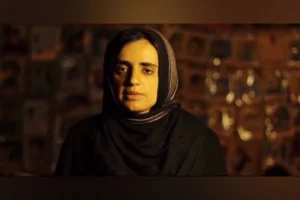In the Khyber Pakhtunkhwa province of Pakistan, residents of Ranowali and Dubair areas in the Lower Kohistan district took out a protest blocking the Karakoram Highway over failure of Water and Power Development Authority of Pakistan (WAPDA) to fulfill a 2022 agreement regarding road reconstruction and water supply, Dawn reported.
The blockade took place on Friday and caused major problems for people travelling between Khyber Pakhtunkhwa and Pakistan-occupied Gilgit-Baltistan (PoGB).
Former provincial minister Malik Aurangzeb said protesters chanted slogans against WAPDA in the Dubair area. “The WAPDA chairman signed an agreement with us in a jirga (assembly of leaders) two years ago for reconstructing 28 km of Dubair Road and 6 km of Ranowali Road and for supplying potable water to us, but no progress has been made,” he was quoted as saying in the Pakistan news outlet.
Aurangzeb further stated that the Pakistani government had not taken any steps to address residents’ problems despite several protests.
Malik Salahuddin, another speaker, highlighted that during a 2022 meeting with victims of the Dubair Khawar project, the WAPDA chairman had pledged to repair two local roads and restore drinking water systems damaged by flash floods with the help of the World Bank. However, these promises have yet to be fulfilled.
During the same protest, Dubair Bala village council chairman Juma Shah Jallai stated that WAPDA must ensure the safety of individuals living downstream from the Dubair Khawar hydropower project. He said, “The commissioner of Hazara division has invited us to Abbottabad for talks, but we want him to speak to us on our soil in the presence of all stakeholders.”
Earlier, local governments, including tehsil, village, and neighbourhood councils, protested against the provincial government for not releasing development funds since the establishment of local government in the province about three years ago.
The government services in Khyber Pakhtunkhwa face several problems related to outdated infrastructure and insufficient facilities. service centres and government officers lack the basic resources to effectively serve the public.



















